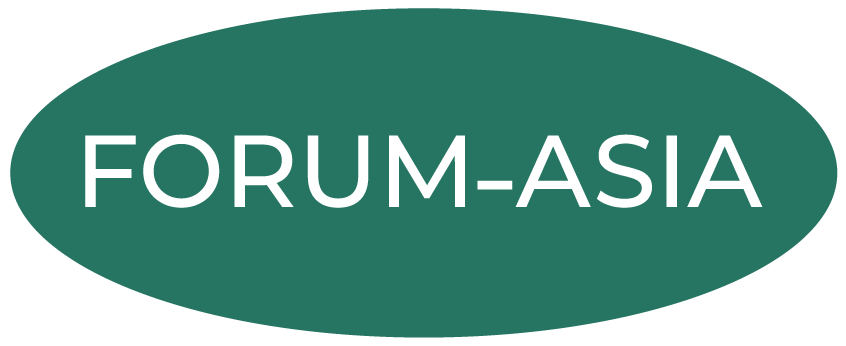The most prominent concern for Cambodians in the online domain recently has been the draft Cybercrime Law, which has first announced in 2012. The very broad phrasing of the law, particularly in the Cambodian context, where other laws are very tenuously interpreted to criminalise civil society’s work, leaves no doubt that it could be used to crack down any criticism of the Government. Similarly stifling CSOs’ work is the infamous Law on Associations and NGOs (LANGO), which subjects organisations’ right to assemble to severe restrictions. The LANGO also has been utilised by authorities to threaten or dissolve organisations.
Cambodia
Brief Overview
The Law on Associations and NGOs (LANGO)
The Law on Associations and NGOs (LANGO) was passed by Cambodia’s lower house (National Assembly) amid a boycott by all 55 members of the opposition Cambodia National Rescue Party (CNRP) and public protests. LANGO is, by far, the most ambitious attempt by the Hun Sen regime to oversee an important sector in civil society. It has drawn criticism largely because of its draconian measures to restrict NGO and civil society activities, namely by requiring registration, defining which activities may or may not proceed, and mandating organisations to operate under a vaguely defined obligation to maintain “political neutrality.”
Civil society organisations and their leaders have been placed under watch by the Interior Ministry for “allegedly aiding the CNRP.” FORUM-ASIA members LICADHO and ADHOC “are under investigation because most of their activities are working to serve the opposition party,” ministry spokesman Khieu Sopheak said. “I wish to state that the two organizations are good, but individuals and leaders in the organizations are working to serve the opposition party.”
The unofficial translated version of the LANGO can be found in the link below
Updates
2021
22 February: Govt’s working group urged to expedite amendments to Lango
Non-governmental Organisations (NGOs) have called on the government’s working group to speed up its internal discussion on the draft amendments to the Law on Association and Non-governmental Organisations (Lango).
18 February: Gov’t reviews NGOs’ inputs
A government working group is evaluating proposed revisions to the Law on Associations and Non-Governmental Organisations (LANGO). The group has reviewed input from various NGOs and will hold further consultations with them before referring recommended reforms for ratification.
2020
07 September: Activities organised by Khmer Thavrak and Mother Nature labelled for not complying with LANGO
The Ministry of Interior threatened public not to participate in activities organised by Khmer Thavrak and Mother Nature claiming that they carried out activities not registered with the Ministry, which is required under the Law on Associations and NGOs (LANGO).
27 August: 75 NGOs seek resumption of talks on LANGO amendments
Seventy-five NGOs have urged the government to continue the consultation and to accelerate the development on LANGO amendment draft.
07 July: LANGO discussions end in stalemate
The sixth and final discussion on LANGO amendments between the civil society organization and the government could not reach the agreement.
20 February: Sar Kheng: Gov’t won’t revoke LANGO
The request to repeal LANGO from some civil society group was rejected by Interior Minister Sar Kheng.
12 February: Government lacks will to amend LANGO: NGOs
The joint statement released by 100 local communities and NGOs were expressed concerns toward government that incapable of revising the LANGO.
2019
4 December: Ministry asks NGOs to form a working group to discuss LANGO
The Interior Ministry asked local and foreign NGOs representatives to establish a working group to find a common ground for inputs to be included in the draft amendment to the Law on Associations and Non-governmental Organisations.
11 April: Sok Eysan lashes out at NGOs over LANGO
CPP spokesperson argued that only a minority of civil society organisations are dissatisfied with LANGO
2018
14 January: New LANGO committee formed
Under the directive signed on 5 December 2017, a new interministerial committee was formed to manage the activities of international NGOs
2017
3 December: Hun Sen: rights organisation CCHR will not be shut down
On 2 December 2017, Prime Minister Hun Sen announced that the Cambodian Center for Human Rights (CCHR) will not be closed down. The announcement came in an unexpected turn after, a week ago, he accused the CCHR for its serving foreign interest and called for an investigation by Ministry of Interior under LANGO.
31 August: Cambodia’s controversial NGO law snares its first victim
On 23 August 2017, the US States Department funded organisation, National Democratic Institution (NDI), was given an order to terminate its operation in the country. It was closed for violating grounds on political neutrality.
17 November: Land rights organisation in LANGO limbo
On 28 September 2017, Equitable Cambodia was suspended for 30-working days for violating requirement under the LANGO for their involvement in the demonstration on land rights issues. After 30 days of suspension, the organisation faced uncertainty since it needed approval from the Ministry of Interior to re-operate. Later on 25 February 2018, the organisation was allowed to reopen
Draft Cybercrime Law
The draft Cybercrime law in Cambodia comes in consonance with repressive cyber laws enacted worldwide. The draft law was leaked in early 2014 by Article 19. The Cambodian Government has denied the existence of such a law. Like other cyber laws, it has been criticised by numerous local and international NGOs for having overly broad and arbitrary provisions, disproportionate sanctions, and inconsistency with international standards.
The unofficial translated version of Draft Cybercrime Law can be found in the link below;
However, Cambodian officials denied the existence of such draft law.
Updates
2021
2020
08 October: Civil Society Groups Say Draft Cybercrime Law Risks Free Expression, Privacy
Rights groups concern over clauses of the draft cybercrime law that could help the government intensify its crackdown on freedom of expression and right to privacy.
17 June: Ministry holds consultations on draft tech crime law with US experts
The Ministry of Interior held an online consultation with representatives from the US Embassy and US technology companies regarding Cambodia’s draft cybercrime law.
2019
11 December: Interior Ministry continues work on cybercrime law
The Interior Ministry and legal experts are continuing to review a draft law on cybercrime.
12 July: The Ministries of Interior and Justice review the draft Cybercrime law
On 10 July, the Ministries of Interior and Justice, together with relevant officials and legal experts, held a meeting to review the draft Cybercrime law.
5 March: Prime Minister Hun Sen called on ministries to speed up the draft of the anti-cybercrime law
Prime Minister Hun Sen called on ministries to speed up the draft Cybercrime law, as well as to consider enacting anti “fake-news” law. The call came after his Facebook account was allegedly hacked.

 To learn more about our ASEAN advocacies and campaigns, click here.
To learn more about our ASEAN advocacies and campaigns, click here.